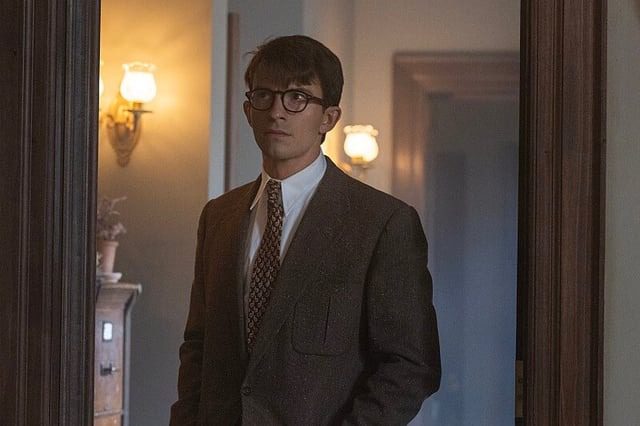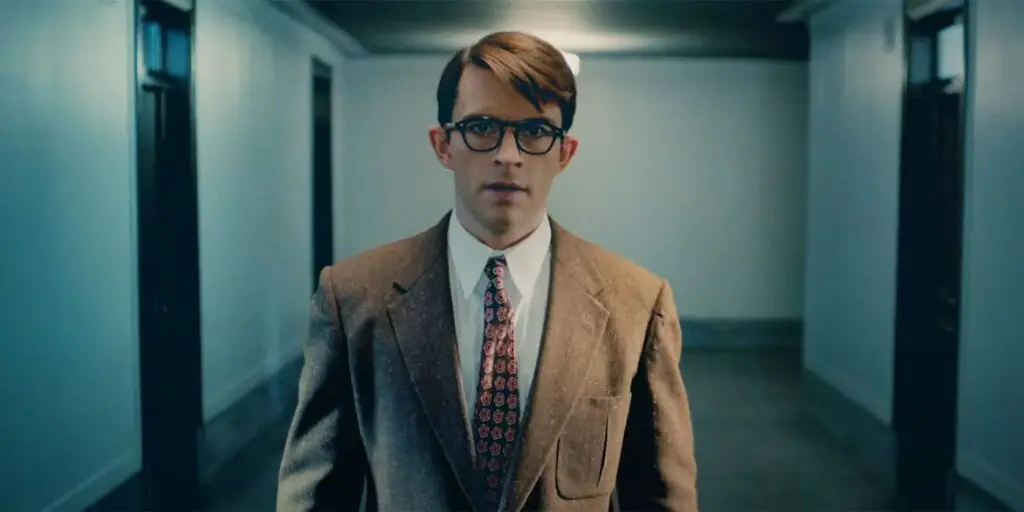The Showtime series ‘Fellow Travelers,’ an adaptation of Thomas Mallon’s novel, follows the poignant and turbulent romance between Hawkins ‘Hawk’ Fuller and Tim Laughlin, portrayed by Matt Bomer and Jonathan Bailey, respectively. The narrative deftly spans several decades, from the McCarthy-era ‘Red and Lavender Scares’ to the AIDS crisis of the 1980s, presenting a vivid tapestry of love, identity, and struggle against societal and political constraints.
Bailey’s portrayal of Tim Laughlin, an idealistic, devout Catholic grappling with his gay identity, is both deeply moving and transformative. His journey from an innocent and gentle young man to a fiery and determined figure is marked by a profound emotional range, capturing the complexities of his character’s internal and societal conflicts. His performance, particularly in the finale, is nothing short of a revelation. Through various timelines, Bailey articulates a multitude of layers – from joy, defiance, and grit, to the nuanced acceptance of a tragic fate, embodying the resilience and spirit of gay men striving for dignity in a world often against them.
A pivotal moment in the series is Bailey’s delivery of a powerful monologue, where he asserts the undying nature of his love for Hawk, refuting any notion of regret or misfortune despite the societal challenges they faced. This scene stands as a testament to Bailey’s exceptional ability to convey intense, raw emotion, capturing the essence of a love story set against a backdrop of political and social upheaval.
The Dynamic Interplay Between Bailey and Bomer: A Cinematic Marvel

The chemistry between Bailey and Bomer is central to the success of ‘Fellow Travelers.’ Their on-screen dynamic is electric, with scenes ranging from passionate to tender, encapsulating both the erotic intensity and romantic depth of their relationship. This palpable connection not only drives the narrative but also serves as a profound commentary on the evolving nature of their relationship, reflecting the changing societal attitudes towards homosexuality over the decades.
Bomer’s portrayal of Hawk Fuller, a complex character navigating the political landscape of Washington D.C., complements Bailey’s performance perfectly. Fuller’s moral ambiguity, juxtaposed with Laughlin’s righteousness, creates a compelling and often heart-wrenching narrative. The show’s nuanced approach to their relationship, set against the backdrop of significant historical events like the Vietnam War protests and the AIDS crisis, adds layers of depth to their performances.
The Lasting Impact of ‘Fellow Travelers’ and Bailey’s Performance
‘Fellow Travelers‘ is more than just a love story; it is a powerful exploration of themes such as identity, prejudice, and the human capacity for love and resilience in the face of adversity. The series excels in its technical aspects as well, with commendable cinematography, lighting, props, and costume design that collectively enhance the storytelling.
Jonathan Bailey’s performance, in particular, stands as a remarkable achievement, likely to be remembered as a defining moment in his career. His ability to bring such depth and authenticity to his character has not only captivated audiences but has also significantly contributed to the show’s critical acclaim and cultural impact. ‘Fellow Travelers,’ with its compelling narrative and stellar performances, notably Bailey’s, is set to join the pantheon of significant LGBTQ media that thoughtfully addresses issues like AIDS, oppression, and stigma without resorting to exploitation.
In conclusion, Jonathan Bailey’s portrayal in the ‘Fellow Travelers‘ finale is a tour de force of acting, deserving of every accolade. His performance, along with the show’s thoughtful narrative and production quality, makes ‘Fellow Travelers’ a must-watch series that resonates deeply with its audience, leaving a lasting impression on the landscape of LGBTQ-themed media.


